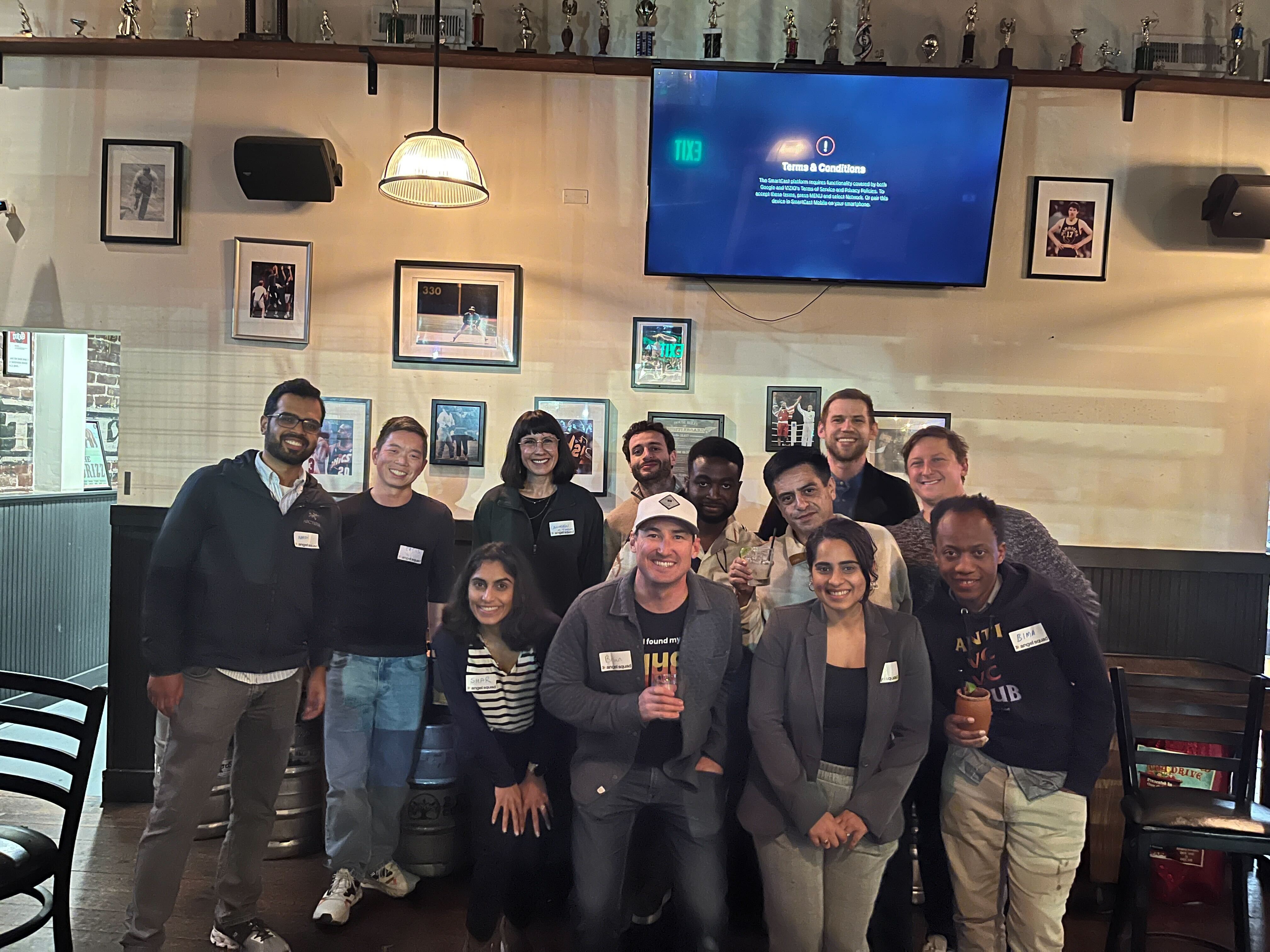Kevin Hartz Investments: What The Eventbrite Co-Founder's Portfolio Reveals About Platform Thinking
.png)
Brian Nichols is the co-founder of Angel Squad, a community where you’ll learn how to angel invest and get a chance to invest as little as $1k into Hustle Fund's top performing early-stage startups.
Kevin Hartz has one of the most consistently successful investment track records in Silicon Valley. He co-founded Eventbrite and Xoom (sold to PayPal for $1.09 billion), and his angel portfolio includes Airbnb, Uber, Pinterest, and Slack. But what's interesting isn't just the names. It's the underlying pattern in how he thinks about investments.
I've spent time analyzing Kevin Hartz investments to understand his framework. And there's a clear thesis running through his portfolio that every early-stage investor should study.
Who Is Kevin Hartz?
Kevin co-founded Xoom in 2001, a digital money transfer service. After selling to PayPal, he co-founded Eventbrite in 2006, which went public in 2018. He's now a partner at A* Capital, a venture firm he founded.
But his reputation really comes from his angel investing track record. He was one of the earliest investors in Airbnb, Uber, Pinterest, and Skype. These aren't just successful companies. They're category-defining platforms.
And that's the key word: platforms. Kevin thinks in platforms, not products.
What's Kevin's Investment Philosophy?
Kevin focuses on a few core areas:
1. Marketplaces and platforms: This is his bread and butter. Eventbrite is a platform. Airbnb is a platform. Uber is a platform. He understands the dynamics of two-sided markets better than almost anyone.
2. Payments and fintech infrastructure: Given his background with Xoom and PayPal, Kevin has deep expertise in payments. His investments in companies like Affirm, Stripe, and Adyen show this focus.
3. Enterprise software with network effects: Kevin doesn't just invest in consumer platforms. He also backs B2B companies that can create network effects or become infrastructure for other businesses.
How Does Kevin Evaluate Founders?
Here are the patterns I've noticed in Kevin Hartz investments:
He backs founders who understand network effects deeply: Kevin looks for founders who can articulate their growth flywheel. How will the first 100 users attract the next 1,000? How will supply attract demand and vice versa?
This isn't just theoretical understanding. He wants founders who've thought through cold start problems and have creative solutions for overcoming them.
He values execution speed and operational excellence: Kevin knows that marketplace businesses are operationally complex. You're managing two customer bases with different needs. He looks for founders who can handle that complexity.
He invests early and doubles down: Kevin often invests in seed rounds and then participates in every subsequent round. This shows long-term conviction and helps maintain meaningful ownership as companies scale.

What Can We Learn From Specific Kevin Hartz Investments?
Let's break down some key deals:
Airbnb: Kevin invested in 2009 when Airbnb was still called AirBed & Breakfast. This was before anyone took the sharing economy seriously. But Kevin saw founders who understood marketplace dynamics and were obsessively focused on both sides of the platform.
The lesson? Sometimes the best investments look ridiculous to everyone else. If you have conviction in the founders and the platform dynamics, other people's skepticism creates opportunity.
Uber: Another early investment in what seemed like a crazy idea. Calling black cars from your phone? Who would pay a premium for that?
But Kevin saw the platform potential. Once you had drivers and riders in one city, you could expand to other cities using the same playbook. That's platform thinking.
PayPal: Kevin was an early employee and saw firsthand how payment platforms create defensible moats. This shaped his entire investment approach.
The lesson? Working inside a successful platform teaches lessons you can't learn anywhere else. Those lessons compound over time.

What Makes Kevin Different From Other Investors?
He's built platforms himself: Kevin isn't just investing in other people's platforms. He's built multiple successful platforms. That gives him pattern recognition other investors don't have.
He thinks in decades, not years: Platform businesses take time to build. Kevin has the patience to let companies develop proper network effects before expecting massive returns.
He's incredibly helpful to portfolio companies: Kevin's reputation for making valuable introductions and helping with operational challenges is well-known. This creates access to better deal flow.
How Should Early-Stage Investors Apply Kevin's Approach?
Here are the tactical takeaways:
Look for network effects, not just viral growth: Viral products can grow fast and die fast. Network effects create defensible moats. Can you articulate why this product gets better as more people use it?
Understand marketplace unit economics: Does the company make money on each transaction? What's the take rate? How much does it cost to acquire both sides of the marketplace? Kevin understands these metrics cold. You should too.
Invest in infrastructure, not just applications: Kevin's fintech investments show his focus on companies that other businesses will depend on. Infrastructure companies often build more valuable businesses than applications.
Be patient with platform businesses: Marketplaces take longer to scale than SaaS products. But once they reach critical mass, they're often more defensible. Don't expect immediate returns.
Double down on winners: When your portfolio companies are working, invest more in follow-on rounds. Kevin's best returns came from companies where he maintained ownership through multiple rounds.
The Platform Playbook
Here's what Kevin looks for in platform investments:
Clear value proposition for both sides: Why would suppliers join? Why would customers use it? Both have to be compelling.
Low friction joining process: The easier it is to join either side of the platform, the faster it can grow.
Strong retention mechanics: Platforms die when either suppliers or customers churn. What keeps both sides engaged?
Path to liquidity: How quickly can new suppliers find customers? How quickly can new customers find what they need?
The Bottom Line on Kevin Hartz's Investment Strategy
Kevin's success comes from deep platform expertise. He's lived through building network effects multiple times. He knows which metrics matter, which challenges every marketplace faces, and which founder qualities predict success.
For early-stage investors, the lesson isn't to copy Kevin's platform focus blindly. It's to develop deep expertise in one area and apply that pattern recognition consistently. Whether you're focused on platforms, SaaS, or consumer products, developing a clear framework helps you evaluate deals better and say no to opportunities that don't fit.
And if you want to connect with other investors who've actually operated companies and understand what it takes to scale, Angel Squad brings together angels who can spot the difference between a pitch deck and a real business.
Kevin Hartz investments reveal that the best returns come from pattern recognition earned through experience, not just following whatever's hot on Product Hunt.
That's worth remembering next time you're evaluating a deal.













